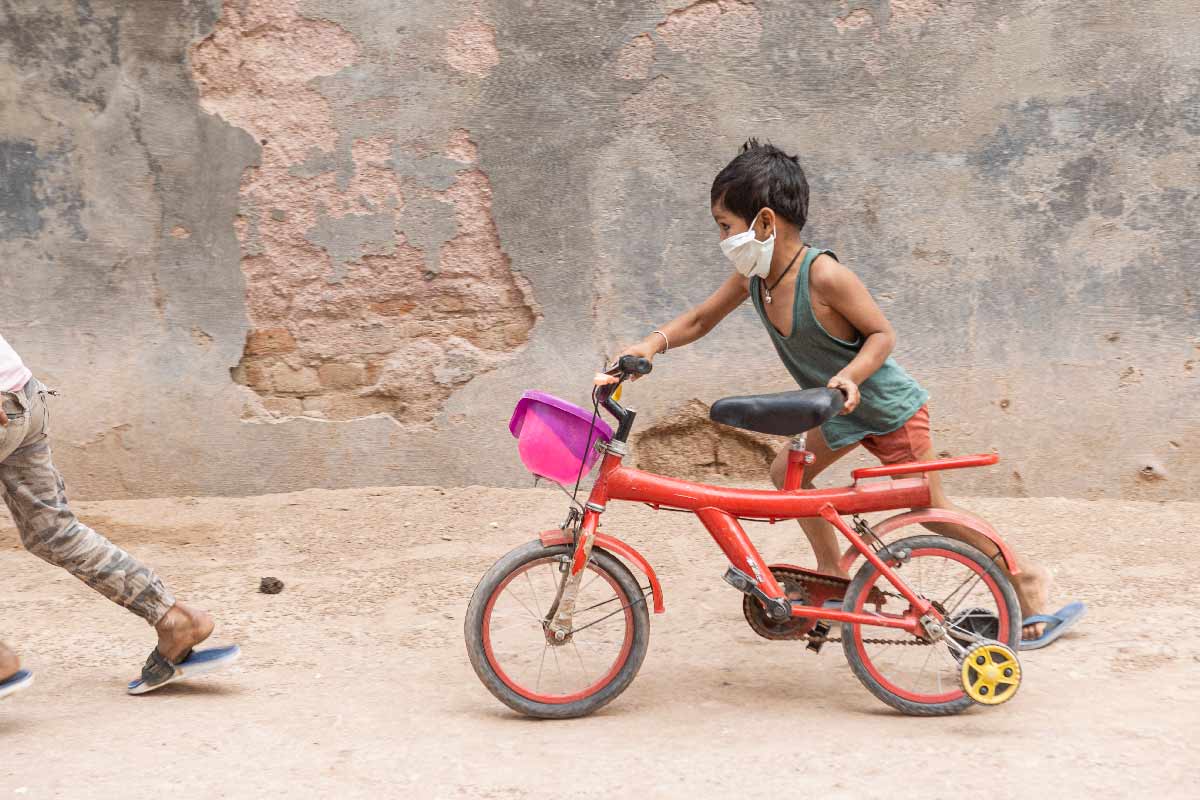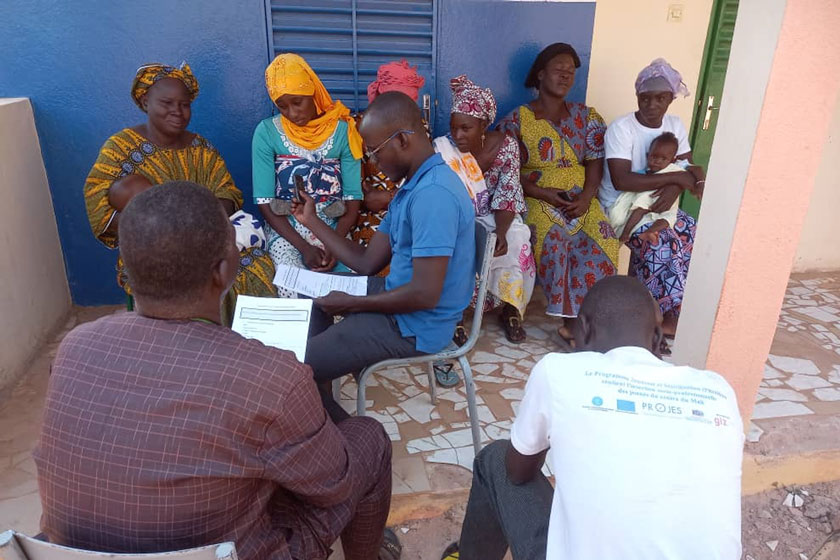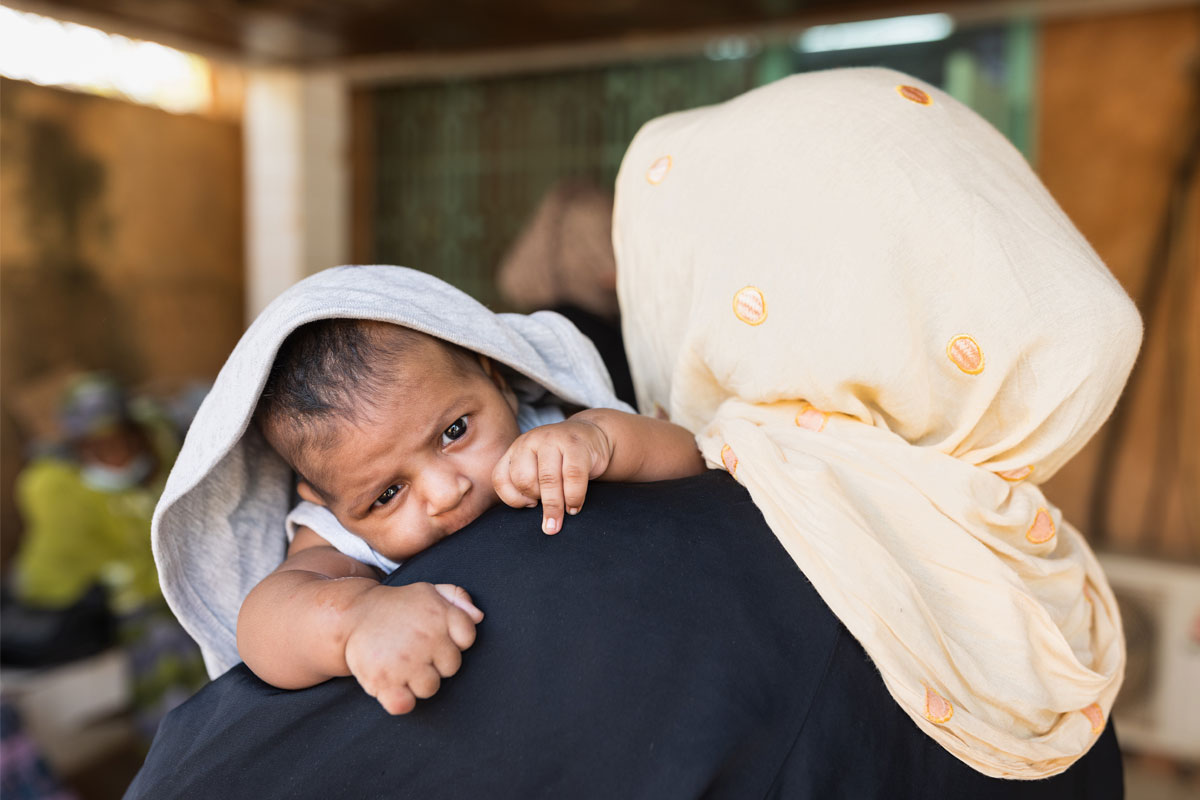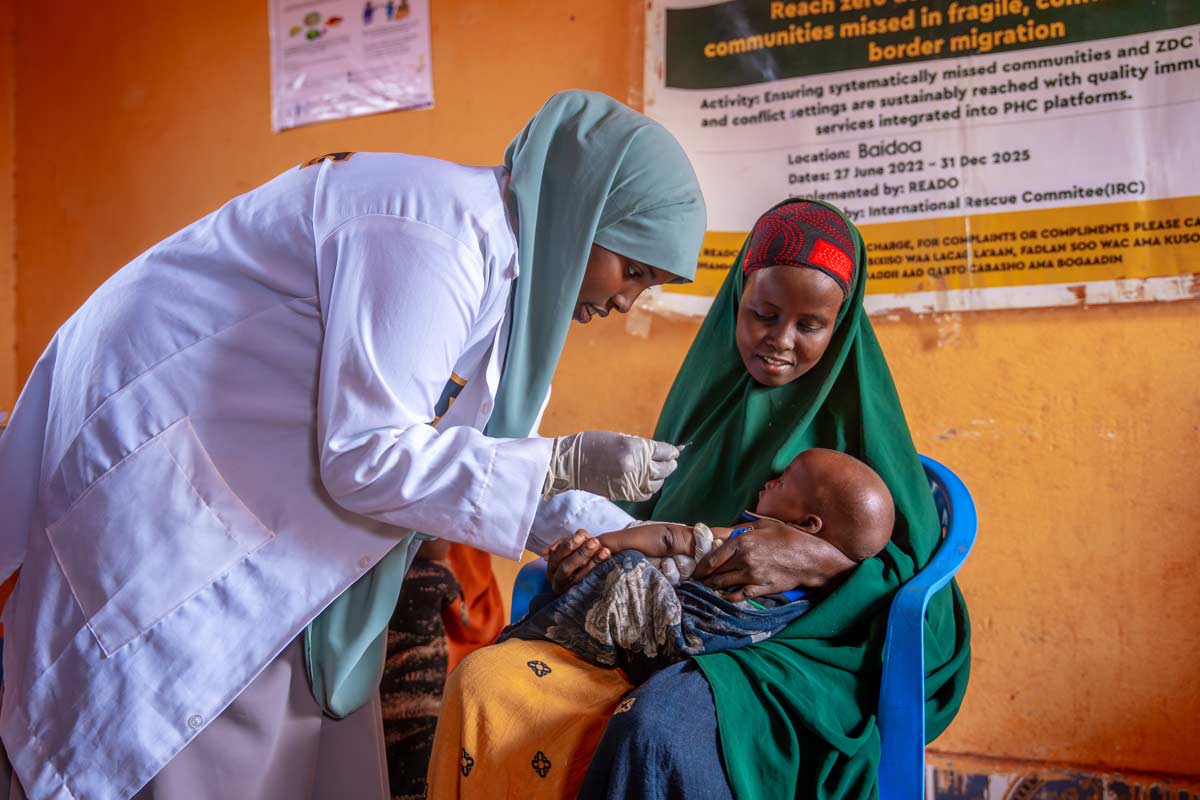From evidence to action: How local networks drive zero-dose solutions
Lessons learned from Mali and Nigeria could help us to reach more of the hardest-to-reach with vaccines.
- 22 July 2025
- 5 min read
- by JSI
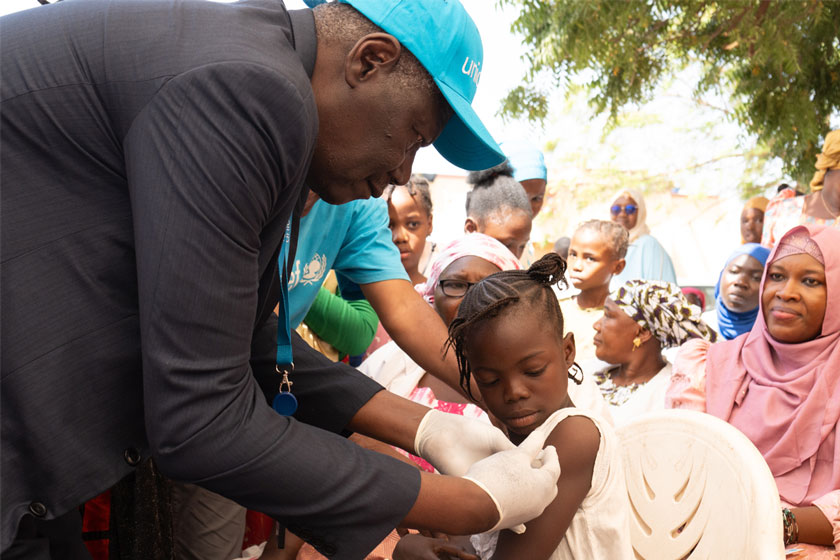
Closing the zero-dose gap requires partnering with local networks to understand why children are missed and turning insights into action.
This was the focus of Gavi’s Zero-Dose Learning Hub (ZDLH) webinar, From Evidence to Action: How Local Networks Accelerate Zero-Dose Evidence Uptake, which convened the Mali and Nigeria Learning Hubs and the Clinton Health Access Initiative (CHAI), part of the Gates Foundation Zero-Dose Learning Agenda (ZDLA).
Hosted by JSI, the ZDLH global learning partner, the session highlighted how engaging local networks, uncovering barriers and translating evidence into tailored strategies are essential to closing the zero-dose gap and sustaining progress.
Building local solutions through iterative learning
Sustained progress depends on continuous learning cycles that revisit zero-dose drivers, deepen understanding and adapt interventions.
“We use iterative learning cycles to keep reviewing and going deeper into local drivers and root causes, jointly adapting interventions and strengthening a continuous learning mindset,” explained Jenny Sequeira, ZDLA consultant.
In Nigeria, the ZDLH’s Decentralised Immunisation Monitoring uses lot quality assurance sampling to rapidly assess immunisation performance at the local level.
This approach combines immunisation data with social and behavioural insights, such as low maternal education and limited engagement with health services, to quickly adapt outreach strategies, like targeting caregivers who knew where to vaccinate but remained hesitant.
In Mali, the Learning Hub’s implementation research included two innovations: Coach2Pev, a coaching tool to improve microplanning and reach zero-dose children, and Medexis, an electronic logistics system offering real-time vaccine stock visibility.
Participatory workshops helped refine these tools, aligning outreach with local realities and enabling health workers to analyse zero-dose data, prioritise underserved areas and adapt microplans, even in conflict-affected districts.
Turning insights into action: knowledge translation in practice
Knowledge translation was central to efforts in both Mali and Nigeria.
In Nigeria, the Learning Hub’s Decentralised Immunisation Monitoring and budget analysis informed advocacy, contributing to the creation of new state-level budget lines for immunisation, helping ensure timely funding and stronger accountability systems.
Stakeholder mapping and community scorecards facilitated dialogue with government officials, aligning data with planning and financing decisions.
“By triangulating findings from various assessments, we developed scorecards to advocate for accountability with stakeholders, creating communities of practice for sustained impact. We mapped stakeholders across ministries, budget, finance and civil society, conducting engagement and advocacy with the scorecards,” noted Dr Yahaya Mohammed of the Nigeria Learning Hub.
Have you read?
“These efforts led to concrete changes: in Kano state, a 100% increase in the immunisation budget line; in Bauchi, full release of 2024 allocations; and in Sokoto, expansion of health facilities. And through Decentralised Immunisation Monitoring, we identified behavioural and social drivers and used this evidence to advocate with immunisation stakeholders.”
These achievements reflect how evidence-based local engagement can unlock resources to improve immunisation services.
By validating tools and applying a participatory knowledge translation process – which includes identifying findings, translating them into actionable products like briefs, disseminating through collaborative platforms, monitoring use and documenting changes – the Mali Learning Hub strengthened shared understanding and prepared health teams to act on evidence, even in complex environments.
“The idea is really to use the evidence to create real change. We worked with the Ministry of Health and partners to engage stakeholders with important information translated into concrete products that influence decisions from national to local levels, not just creating something for a project that ends, but embedding knowledge into existing systems so it continues beyond the project’s life,” explained Dorothy Leab of the Mali Learning Hub.
CHAI’s work under ZDLA in Nigeria highlighted how iterative, community-led processes can break down cultural and social barriers.
Through the Immunisation Advocacy Network, male caregivers worked with religious and traditional leaders to design and refine mosque sensitisation and household outreach, to address barriers. Structured feedback enabled rapid adaptation, informed decisions and built shared ownership.
“The male caregivers developed interventions that included sensitisation sessions in mosques to improve awareness and address permission issues. They engaged caregivers of zero-dose children through facility data, house-to-house visits, focus group discussions and key informant interviews to identify barriers,”explained Dr Salisu Sulaiman.
Reducing zero-dose prevalence depends on embedding timely insights into planning and action. Engaging stakeholders, contextualising findings, and using evidence at the right moment can transform how programmes identify and reach missed children.
“The male caregivers found that fears about adverse effects after immunisation were a major barrier. To address this, they expanded mosque discussions to include information on adverse effects and introduced periodic outreaches to reach communities where cultural norms prevented women from leaving home.”
These activities showed how continuous learning and local networks can iteratively refine interventions.
Local networks drive evidence-based change
The experiences shared during the webinar underscored a central theme: real progress comes when locally-generated evidence drives practical decisions.
Reducing zero-dose prevalence depends on embedding timely insights into planning and action. Engaging stakeholders, contextualising findings, and using evidence at the right moment can transform how programmes identify and reach missed children.
“It’s important to understand how stakeholders make decisions, what role evidence plays, and how to act on opportunities. We need timely, relevant evidence to unlock and build a learning culture,” noted webinar facilitator Gustavo Corrêa from Gavi.
Because evidence needs and opportunities for its use vary across partners and decision levels, methods for generating and translating evidence must be tailored to the decision being made and the stakeholders involved.
This responsive, locally driven approach will be essential for sustaining progress toward identifying and reaching every zero-dose and under-immunised child.
To learn more, access the full webinar recording and additional resources on the ZDLH website.
Led by JSI, with partners the International Institute of Health Management Research (IIHMR) and The Geneva Learning Foundation (TGLF), Gavi’s ZDLH is a global learning initiative to generate evidence and engage stakeholders to identify and reach zero-dose and under-immunised children. As the global learning partner, JSI supports Country Learning Hubs in Bangladesh, Mali, Nigeria and Uganda to advance evidence-based strategies aligned with Gavi’s Identify – Reach – Monitor – Measure – Advocate (IRMMA) framework. Key ZDLH achievements include demand-driven technical assistance and the development of tools and resources, all aimed at identifying and reaching zero-dose children and integrating evidence into policy and practice.
